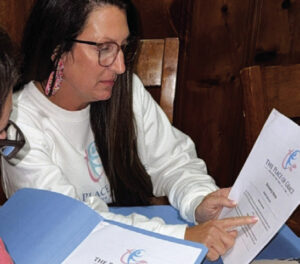In defense of dodgeball
By By Craig Ziemba / guest columnist
July 11, 2004
Recently I've heard psychologists suggest that many of the sports we played as children are harmful because they encourage aggression and competition instead of sensitivity and cooperation.
Instances of criminal bullying are often portrayed as the result of what happens when young boys grow up playing too much dodgeball or tackle football. But is that an accurate correlation? Is there a place for rough and tumble contact sports and, if so, what legitimate purpose do they serve?
I'm not sure why, but deep within the male psyche lives the desire for adventure, competition and the risk of physical danger.
Psychologists may roll their eyes, but something innate drove my friends and me to build ramps for our bikes, hunt rattlesnakes with machetes and try double flips off the high dive. That same part of male nature that causes a cowboy to strap himself to the back of a bull and an 80-year-old former president to jump out of an airplane also drove Lewis and Clark across the Rockies and kept Christopher Columbus sailing West.
Channel the energy
Whether they call it machismo, testosterone or stupidity, many 21st century intellectuals teach that it should be discouraged in boys and trained out of young men. I disagree.
Instead of ignoring a boy's need for risk and adventure, we should give young men positive opportunities to channel their energy and learn how to harness the impulsive aspects of their personality for good.
Contact sports teach young men important life lessons, like how to control aggression, play by the rules and fight hard and how to be buddies with the guy that just knocked you flat on your back.
Take boxing, the most politically incorrect sport of all, for instance. I'll admit, the first time you get punched on the nose, you feel rage. But you quickly learn that if you lose your self-control, you will lose the match. And you also learn to respect the opponent who refuses to give up even though he's taking a licking.
Football teaches similar life skills that can't be duplicated in badminton.
It takes courage to hurl yourself at somebody one-and-a-half times your size and know that the collision is going to feel like a train wreck. I'm not sure why, but when I was a boy it felt good to tackle and be tackled. There was a thrill that went along with the danger.
As a young man, I needed to look fear in the eye and defy it. That's where Nick came in. Nick Weilander was a 6 foot 5 inch, 250-pound senior who lived down the hall from my freshmen friends and me.
Every so often when we were feeling brave, we'd sneak into his room in the night with a pitcher of ice water, dump it on him while he slept and run for our lives. He would jump out of bed, chase us down and beat the tar out of us.
It was a symbiotic relationship. We kept him on his toes, he put us in our place and, believe it or not, we all grew to be great friends.
Life lessons
Whether it's organized contact sports or plain old-fashioned roughhousing, there are important life lessons that boys take away from their play.
Boys need to learn to face their fears. They need the confidence that comes from winning in a challenging environment and the humility that comes from losing even when you've done your best.
Young boys who learn to handle themselves well in victory or defeat become men who can handle the ups and downs of life, because in the real world there are winners and losers and everybody doesn't get a trophy for showing up.
Boys who learn how to pick themselves up off the ground and get back in the game will eventually prove that the victory doesn't always go to the biggest or to the strongest, but to the one with the most persistence and character.
Game on.
Craig Ziemba is a military pilot who lives in Meridian.













